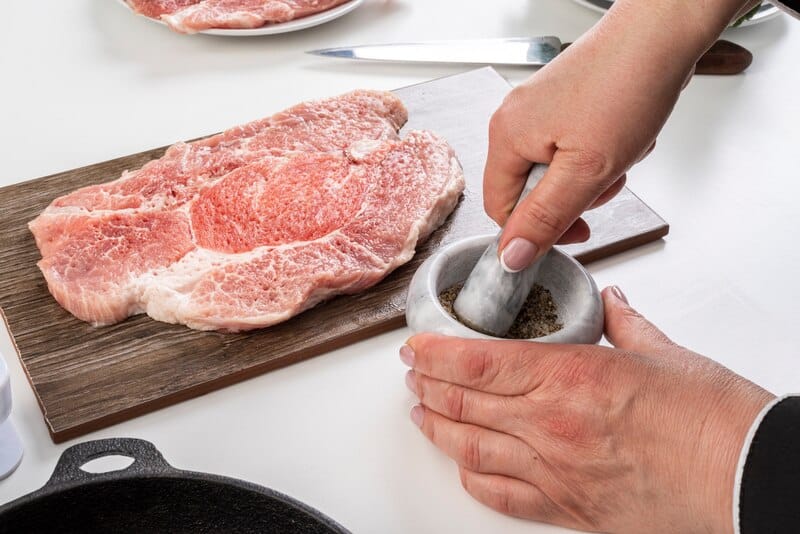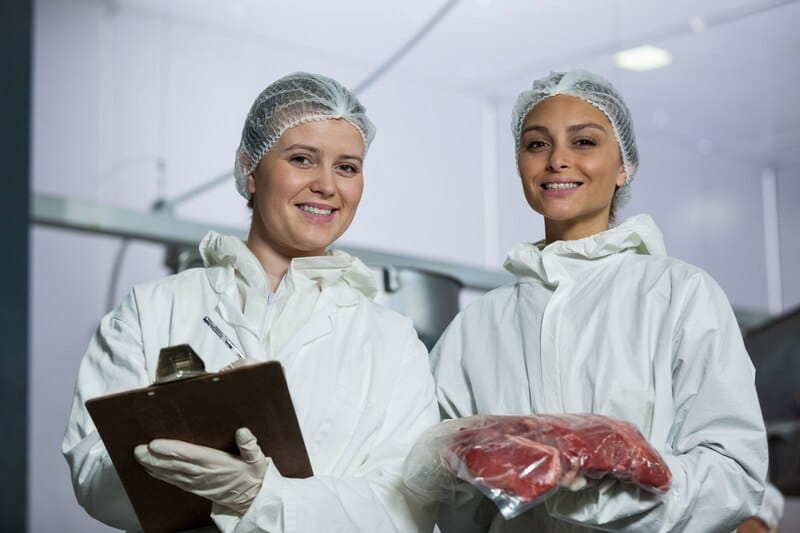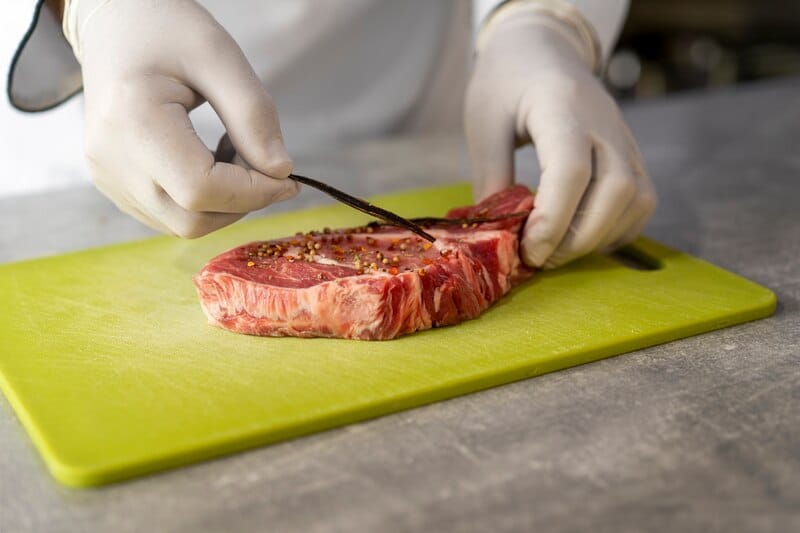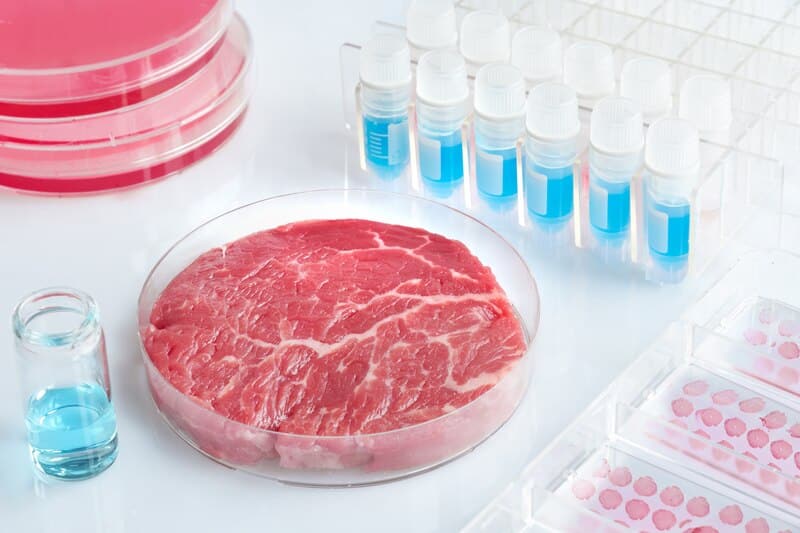The Berlin-based business Project Eaden has recently secured roughly $11 million to begin producing realistic vegan steaks using their innovative technology that manufactures edible protein fibers that resemble the appearance of animal flesh.
Companies such as Beyond Meat and Impossible Foods have made significant strides in recent years toward the creation of convincing faux meat products such as burger patties and chicken nuggets, paving the road for widespread consumer acceptance of vegan alternatives. Examples of these products include chicken nuggets and burger patties. But the question remains: Will there ever be a moment when plant-based meat tastes exactly the same as a succulent steak?
The Eaden Project, which is based in Berlin, Germany, is confident that the technology it has developed will finally eliminate the differences in flavor and texture that exist between plant-based meats and their animal-based equivalents. This will make it possible for large-scale production of plant-based steak that is indistinguishable from its animal-based equivalent.

“A fantastic plant-based steak isn’t only connected with benefits for the consumer market, but also for the world,” Eaden Project co-founder Hubertus Bessau said in a statement. This is because animals are responsible for six percent of all greenhouse gas emissions. It has been calculated that the “carbon hoofprint” is comparable in size to that of the transportation industry throughout the entirety of the world (including land, air, and sea).
The company has discovered a way for producing vegan meat from pea protein that is spun into threads with a thickness of only one hundred micrometers. This method leverages a fiber-spinning technology that is already in use in industries such as textiles, aerospace, and information technology. To create vegan “meat” with the consistency of marbled beef, animal-like protein fibers are combined with vegetable fat in a bundling process.
The initial offering from Eaden Project is vegan beef steak, a plant-based alternative to the product that causes the most damage to the environment. When compared to the creation of beef steak using the traditional approach, the amount of resources utilized to manufacture meat using this method is reduced by 95 percent, and the quantity of greenhouse gases produced is reduced by 85 percent.
Co-founder of Project Eaden, Jan Wilmking, made the following statement about the organization’s ultimate objective: “Our ultimate goal is to offer people a solution that eliminates every single motivation there is for there to be to eat animals.” We have high hopes that we will be able to recreate, and possibly even improve, the sensory profile and overall delight that eating meat gives diners.
Making a vegan steak that tastes and looks much like real steak
The Eaden Project makes use of technology that has been existing for quite some time. In point of fact, the process of fiber spinning has been utilized in the manufacturing of textiles for literally thousands of years, ever since the Egyptians devised the hand spindle to facilitate the manual weaving of yarn. Since this technology has been developed and perfected over the years in a variety of other settings, Eaden is leading the way in applying it to the food business. Using the technology of fiber-spinning, it is possible to create proteins that are similar to those found in animals. This provides a significant advantage over the methods that are currently used to produce meat.

Extrusion, which involves cooking a dough consisting of vegetable proteins, oil, and water under high pressure, generating a continuous protein bar, and then processing the bar into various items, is currently the most popular method for producing vegan meat. Extrusion was first developed in the 1960s. Scalability allows for the rapid production of low-cost vegan meat in huge quantities, but the final products have a grainy and elastic texture that is difficult to replicate. Scalability also allows for the production of vegan cheese in large quantities.
There has also been an uptick in the production of meat substitutes utilizing 3D printing technology. In this particular instance, the intricacy of the product is limited by factors such as nozzle size, and it has a chewy feel; both of these characteristics are a result of the current level of the technology, which presents challenges.
However, cultured meat is still in its infancy and needs to advance in areas such as cost, energy consumption, and scalability before it can compete with livestock that is raised using conventional methods. This is true even though it shows the most promise for imitating the textural characteristics of meat.
Eaden’s fiber-spinning method produces scalable vegan meat that is virtually indistinguishable from its animal counterpart in terms of iron, umami, and acid notes. This solves many of the issues that are connected with extruded, 3D-printed, and cultured meat. This is accomplished through the formation of continuous fibers that are capable of being precisely ordered on a millimeter scale and grouped in such a way as to provide marbling and texture.

And the finished product, which can be seen in the image to the right, is a vegan steak that almost exactly replicates the appearance and flavor of its meat-based counterpart. Which one of these loins do you believe is appropriate for vegans? If you look at the pair on the far right, you will be able to determine which ones came from the Eaden Project.
According to David Schmelzeisen, Ph.D., co-founder of the Eaden Project and materials scientist, many modern high-tech materials are based on natural fibers because of their adaptability. This statement was made by Dr. David Schmelzeisen. “Both plant fibers and muscle fibers are adaptable building blocks with exceptional material qualities,” he continued. “Both of these types of fibers may be found in plants.”
Schmelzeisen said that carbon fiber is utilized in the production of rockets and satellites, whereas biomaterial-based implants are utilized in human medical practice. “We are replicating meat, fiber by fiber, using procedures that have been established and are easily scalable from the textile industry,” the researchers said. “This is a first.”
Eaden Project has successfully raised €10.1 million ($10.9 million) and assembled a team consisting of problem engineers, food technologists, material scientists, and culinary specialists to facilitate the development of its vegetarian meat alternatives. It has plans to create a vegan “beef steak” at some time this year that will be extremely similar to the real thing in appearance and texture.
The big attraction on the menu is a steak that is free of any animal products whatsoever.
The Eaden Project isn’t the only one to develop a substitute for steak that looks and tastes just like the genuine thing. A company called Juicy Marbles, which was established in Slovenia, also makes vegan meats using a technique that is protected by a patent and involves the stacking of soy protein threads. The company has thus far developed filet mignon and 1.5-pound tenderloins, both of which it hopes will permanently alter how we think of meat as a source of protein.
Vladimir Mikovi, the co-founder of Juicy Marbles, expressed the following sentiment in an interview with VegansBay in November of 2021: “A lofty dream I have is that people will stop comparing plant-based meats versus animal meats, and just start seeing “meats” as a broader category of food, recognizable for its sensory experience, not the source of protein.” Up until relatively recently, the only kinds of meat available were those that came from pigs, cows, chickens, and other animals like that. Nevertheless, throughout the past ten years, our alternatives have grown, and I believe that this makes the present a wonderful time for dining out.
The vegan steak company Juicy Marbles, which debuted its products in 2020 and is currently catering to customers in the United States and Europe through online sales, plans to expand into the restaurant industry soon.








